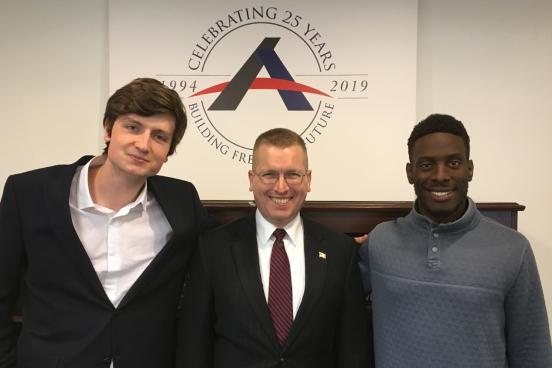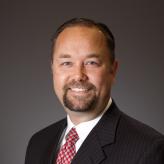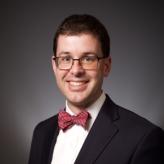Atheists, Jews, Muslims, Catholics file support at US Supreme Court for student free speech rights

WASHINGTON – An ideologically diverse array of groups submitted friend-of-the-court briefs with the U.S. Supreme Court this week that ask it to take a case filed by Alliance Defending Freedom attorneys on behalf of two former college students seeking to vindicate their constitutionally protected freedoms. The parties supporting the former students include atheist, Jewish, Catholic, and Muslim groups as well as student groups, legal scholars, and academic freedom experts.
Two federal courts declined to address whether Georgia Gwinnett College violated the students’ First Amendment rights because the college modified its unconstitutional speech policies after the case was filed. Most federal courts would have still decided the students’ constitutional claims because the college used the old policy to censor the students. A final judicial decision prevents future misconduct, vindicates the essential freedoms that the Constitution protects, and ensures that government officials do not ignore actual legal violations.
“Government officials should be held responsible for enacting and enforcing policies that trample students’ constitutionally protected freedoms. If they get off scot-free, they or others can simply do it again,” said ADF Senior Counsel and Vice President of Appellate Advocacy John Bursch. “Neither the district court nor the appeals court held Georgia Gwinnett College officials accountable for how they repeatedly mistreated, censored, and intimidated the two students involved in this case.”
Student Chike Uzuegbunam tried to share his Christian faith with other students on the Lawrenceville, Georgia, campus in 2016. College officials quickly stopped him because he had not reserved one of two tiny zones where free expression was allowed without a permit—zones that together made up only 0.0015% of campus. When Uzuegbunam reserved a zone, obtained approval of his speech from the college, and again tried to share his faith, officials ordered him to stop once more, this time because someone complained. A college policy said that students could be found guilty of disorderly conduct for engaging in public speech that makes others “uncomfortable.” Student Joseph Bradford self-censored after seeing how officials silenced Uzuegbunam.
ADF attorneys representing the two filed the lawsuit, Uzuegbunam v. Preczewski, to challenge the college’s speech zone and speech code policies. After the lawsuit began, Gwinnett amended its speech zone policy and eliminated its speech code but did nothing to rectify its mistreatment of the students.
The petition ADF attorneys filed with the Supreme Court in January points out that the 11th Circuit is the only federal appellate court that leaves government officials—here, those at a public college—unaccountable for violating citizens’ constitutionally protected freedoms when those officials later change their policies during litigation. The friend-of-the-court briefs filed with the Supreme Court this week echoed that concern.
“Leaving this issue to further percolate in the lower courts will have predictable, serious consequences to the rule of law…,” a brief filed by the American Humanist Association explains. “The Eleventh Circuit now holds that a victim of a past constitutional violation is remediless even when the challenged policy has been enforced against the plaintiff before its repeal…. The Eleventh Circuit’s decision, as the Petitioners summarized: ‘allows government officials to evade accountability for their misconduct and closes federal courts to many citizens who seek to vindicate their priceless constitutional rights.’”
As a brief filed by the Islam & Religious Freedom Action Team of the Religious Freedom Institute states, “the Eleventh Circuit decided that after the school withdrew its policy, Chike’s claim no longer mattered since he did not suffer quantifiable financial harm beyond the injury of having his rights infringed. That is wrong. Our constitutional freedoms are priceless, and the government should not be able to violate them without consequence simply by changing its ways before litigation concludes.”
“The decision below threatens the ability of college and university students to vindicate their First Amendment rights at a time when those rights are increasingly at risk…,” the Foundation for Individual Rights in Education wrote in its brief, adding that “the Eleventh Circuit’s decision fails to appreciate that the deprivation of a constitutional right is an injustice irrespective of whether it results in monetary loss.”
“We need to ensure that the wrong done to our clients is righted—something that both the district court and the 11th Circuit failed to do,” said ADF Senior Counsel Tyson Langhofer, director of the ADF Center for Academic Freedom. “It’s our hope the Supreme Court will weigh in to make sure that this denial of justice doesn’t occur to anyone else.”
- Pronunciation guide: Chike Uzuegbunam (CHEE’-kay Oo-zah-BUN’-um), Preczewski (Preh-SHEV’-skee), Langhofer (LANG’-hoff-ur)
The ADF Center for Academic Freedom is dedicated to ensuring freedom of speech and association for students and faculty so that everyone can freely participate in the marketplace of ideas without fear of government censorship.
# # # | Ref. 57426
Related Profiles


